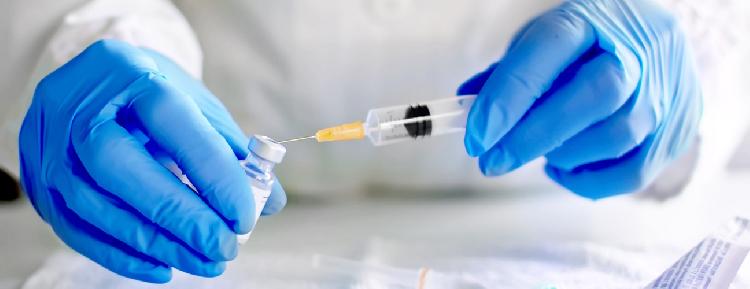Africa-Press – Namibia. THE Africa Centres for Disease Control and Prevention (Africa CDC) believes that Namibia’s vaccination age should start at 10, in order to reach 70% coverage. This comes as the country reported almost 10 000 new infections in two weeks.
Currently, only children from the age of 12 may be vaccinated in Namibia. The Africa CDC recently announced on their Twitter page that only a few member states – Libya, Morocco, Mauritius, Seychelles and South Africa – are targeting the correct age groups.
“In Africa, only five African Union member states are targeting the correct age groups needed to meet continental and global 70% Covid-19 vaccination coverage rates,” the Africa CDC stated.
The health and social services minister, Kalumbi Shangula, however, said Namibia is getting there slowly. “You recall that we started with 18 to 59 years, and now 12 years and older.”
In the same update, the Africa CDC said between 21 November and 14 December, Namibia’s vaccination rate stood at 12,8%. However, Shangula said 21,8% of the targeted population are fully vaccinated.
“Positive news is the daily vaccination uptake increased by 10% from 1 900 recorded on 11 November 2021, compared to the 2 112 daily average recorded as on 13 December 2021,” Shangula told the nation last week.
The country has been struggling with its vaccine uptake, as 154 595 doses of Sinopharm, AstraZeneca and Sputnik component 1 will be destroyed because they are unfit for use. The government, through Mobile Telecommunications Limited (MTC), has implemented incentives for Namibians who get vaccinated, while New Zealand-based infectious disease specialist Dr Gordon Cupido says the country should prioritise high-risk groups first to reduce hospitalisation and death.
According to the ministry, 1 070 children have been vaccinated as of Sunday. CURRENT SITUATION Since the detection of the Omicron variant in the country two weeks ago, the Ministry of Health and Social Services has reported 9 467 Covid-19 cases with a positivity rate of 25,1%. Furthermore, there has been a gradual increase in hospitalisations of Covid-19-positive cases.
On 12 December, the country reported that 72 patients were hospitalised, with three in the intensive care unit (ICU). However, on Sunday, the ministry said the number of hospitalisations had increased to 198 patients, with 16 in the ICU.
The Omicron variant, first detected by South Africa, was found in 18 out 19 samples tested through genome sequencing tests, after president Hage Geingob announced the first local detection on 6 December.
Geingob last week announced that Namibia is currently in its fourth wave of Covid-19 infections. Over the last four days alone, the country recorded 5 281 new infections and reinfections with the Khomas region, accounting for more than half of these numbers.
OMICRON IN AFRICA The World Health Organisation (WHO) regional director for Africa, Matshidiso Moeti, says there has been an 83% surge in new cases on the continent.
“Africa is now officially in the fourth wave of the pandemic – which is partly due to the Omicron variant,” Moeti says.
Just over 3 000 deaths have been reported in Africa during the first three weeks of the fourth wave which is half the number reported during the same period in the third wave, she says.
“Additionally, evidence from South Africa is that while hospitalisations have increased by almost 67% in the past seven days, ICU bed occupancy rates remain low,” Moeti says. WHO Africa has also observed that cases in Africa double every five days. REINFECTIONS
There have been 655 reinfections reported in Namibia in the last seven days. Shangula said the ministry has observed that a significant number of people who contracted Covid-19 already, are testing positive again after a full recovery.
According to the Centre for Disease Control and Prevention, reinfection is an infection in the same person across a different time period with evidence of two different viral strains within more than 45 days in highly suspicious cases of Covid-19, or more than 90 days in asymptomatic cases with low suspicion.
“Evidence suggests that 95% of people produce antibodies two weeks after a Covid-19 onset. It is possible that these antibodies could fade over time, making a person susceptible again to Covid-19 infection,” Shangula said last week.
For More News And Analysis About Namibia Follow Africa-Press






